1. Introduction: DIY vs Professional Kitchen Renovation
Renovating the kitchen remains one of the most valuable home improvement projects any homeowner will embark on. Whether to improve the value, add functionality, or both, or simply remodel the look of your house, choosing whether to do it on your own or hire a contractor is critical. This article will consider the pros and cons of each approach, hence enabling you to make the right decision given your budget, expertise, and the dream you harbor.
2. Why Renovate Your Kitchen?
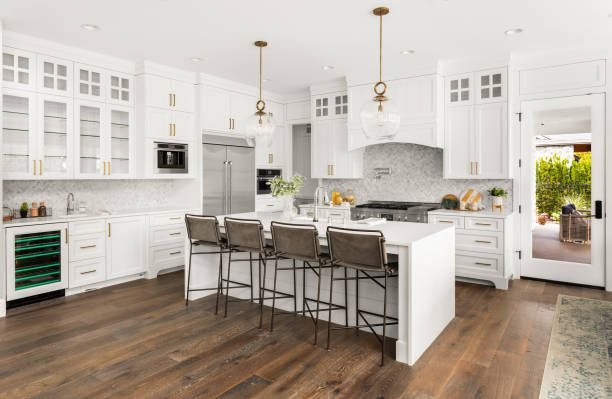
The kitchen you have is the most important spot in your house. It is the place associated with cooking, eating, telling jokes, and even creating those unique special moments. This renovation could dramatically increase this area’s usability while adding new design aesthetics into the mix. When it comes to appliances, space, and the material used in a kitchen, one can significantly improve the value of their home and personal experience through a kitchen renovation.
3. DIY Kitchen Renovation
Definition and Overview:
Do-it-yourself kitchen remodeling means the homeowners carry out all the remodeling activities on their right from the demolitions to undertaking the cabinetry and installations of countertops. This option is usually taken most often by those in it more for the cheap thrill and the pride that comes with workmanship exhibited in homegrown projects. DIY vs. pre-made websites provide freedom in terms of designing but, at the same time, consume a lot of time, energy, and a good amount of competency.
4. Professional Kitchen Renovation
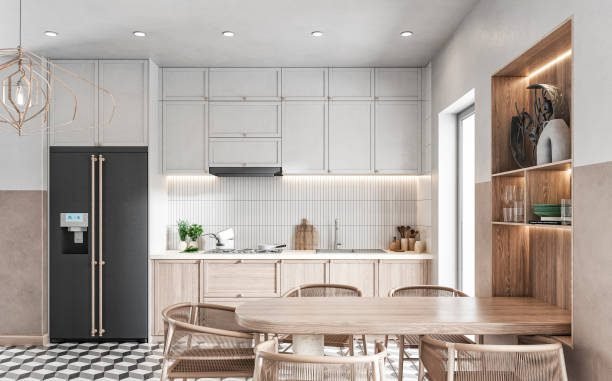

Definition and Overview:
Professional renovation means hiring contractors and designers to do the renovation for him or her. This option is perfect for homeowners who have little time, want to avoid stress and dealing with contractors, and want the best work done on their homes. While costlier than doing it on one’s own, the professionals ensure the work is of good quality and conforms to the set legal requirements.
5. Cost Comparison
Upfront Costs: DIY vs. Professional:
With such renovations, one can avoid incurring costs on labor, which can be quite prohibitive in some cases. Nevertheless, buying materials, tools, and appliances also make up. Professional renovations may include LABOR, but contractors may be able to purchase high-quality materials at a better price than do-it-yourself individuals.
Hidden Expenses to Consider:
Even though DIY seems much cheaper, skills such as mistakes, delays, and sudden repair costs are not readily recognized. Hiring professionals reduces these risks, as they are always likely to envision a certain risk and avoid it.
6. Time and Effort
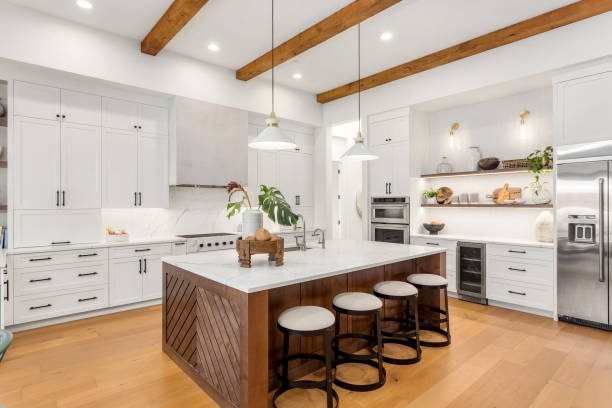
Time Commitment: DIY vs. Professional:
DIY renovations also take time, which could be weeks or even months, depending on the time a person spends on the project and his or her level of experience. With Professional contractors and their staff and proper sequences of operations, the project is completed much earlier than other companies or persons.
The Effort Involved in Both Options:
Refurbishing the kitchen on your own is a very strenuous exercise in terms of your body and mind. It encompasses setting, cutting, and putting them into place,, not forgetting the essence of troubleshooting, which is a time-consuming feat. All the work is delegated to the professionals so you don’t have to deal with every little aspect bothering you.
7. Skill and Experience

Skill Requirements for DIY Projects:
Do-it-yourself kitchen remodeling requires some carpentry, plumbing, and electrical know-how. It is said to be complex, and if one is new to it, he is most likely to make many expensive errors.
Professional Expertise and Efficiency:
Experts bring experience, knowledge, and contacts acquired through practice. They work hard and ensure that every aspect of the renovation is done correctly.
8. Quality of Work
DIY: Risks and Rewards:
The advantages include the ability to save money and have personal input on the construction process, but its disadvantages include the fact that it may lead to substandard work. Issues such as improperly joined cabinets, desks that are not level, and properly joined plumbing connections cause long-term problems.
Professional Quality Assurance:

It’s also important to note that you are paying for the warranty with a professional renovation. Professional contractors ensure that every installation is done appropriately, thus enhancing the efficiency and durability of the kitchen.
9. Tools and Materials
DIY: What You’ll Need:
Going into this do-it-yourself project implies purchasing tools such as saws, drills, and levels and substances such as cabinets, countertops, and floors. The lack of appropriate instruments hurts the speed and effectiveness of the results achieved.
Professionals: Access to Premium Materials:
End-users not only arrive with their tools of the trade but also work with better-quality materials and finishes, which will add value to a kitchen makeover.
10. Permits and Regulations
DIY: Navigating the Red Tape:
If, for example, you are expecting to do some electrical fix on the plumbing and the kitchen area structure you are planning to renovate, then you must secure permits. In general, going through the permit process as a DIYer might be rather complex and time-consuming.
Professionals: Expertise in Permits:
A professional is aware of local laws and permits in practice, ensuring legal compliance for your remodeling to avert legal or resell complications.
11. Safety Concerns
DIY: Potential Hazards:
Hazards arise in DIY renovations, whether using a sharp cutting utensil, wiring circuits, electrical practices, or gas channels. However, if poorly implemented, it can help you or your home catch up with a serious disaster.
Professionals: Safety Standards:
Managers always ensure optimum safety measures are taken, which reduce the likelihood of accidents. They know how to handle danger and its uses, which are protective measures that are taught to them.
12. Flexibility and Control
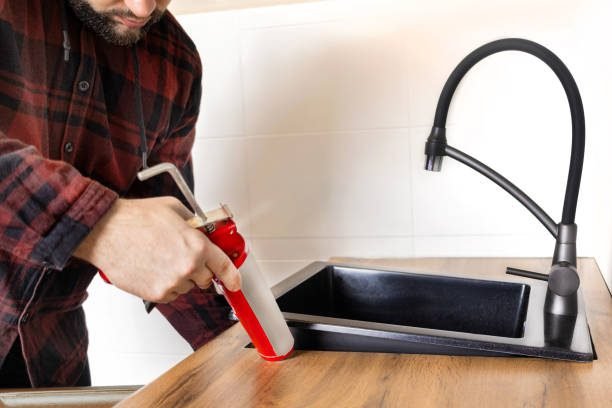
DIY: Total Creative Freedom:
Possibly, one of the greatest benefits of DIY is that the user gains considerable control over the design. This is in contrast to magazines, where most aspects are automatically dictated to you, such as the colors to use and layout.
Professional Input and Collaboration:
It does not come with the dreaded feeling that professionals are embarrassing you out of the project, and all decisions are now out of your hands. Most contractors work hand in hand with the homeowners; they share their ideas and opinions, but they keep in mind the owner’s preference.
13. Project Timeline
DIY: Managing Your Schedule:
In any commercial DIY project, one is in a position to decide when a certain activity is to be done. This feature can be advantageous or disadvantageous, depending on the availability of the intended time for use.
Professional Deadlines and Timeframes:
It involves a clear timeline, which means that professionals take their time to ensure that the work is completed without causing major inconvenience to your day-to-day activities.
14. Resale Value Impact
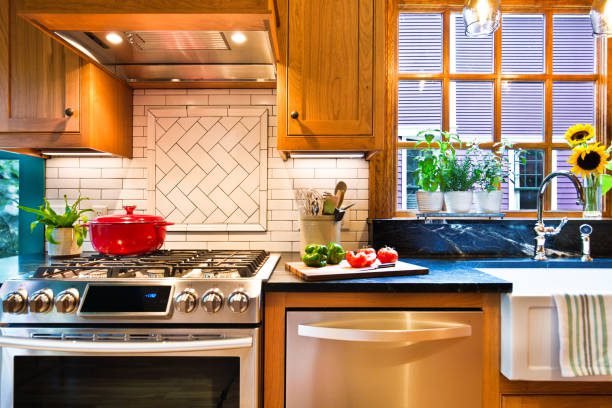
DIY: Effect on Home Value:
Suppose a home improvement job is done professionally individually. In that case, it increases the house’s value, but if done negligently, people preparing to buy homes will be put off.
Professional: Maximizing Resale Potential:
A professionally upgraded kitchen is an important factor that may attract the attention of any buyer. Fine architecture, fine-quality materials, good work, and contemporary architectural enhancements can easily enhance the home’s value.
15. Stress Levels
DIY: The Mental and Physical Strain:
The idea of a DIY kitchen remodel is overwhelming, which is not a surprise because it is a massive job, that can cause stress, fatigue, and annoyance when things turn out differently than expected.
Professional: Peace of Mind:
Recruiting professionals, however, relieves a good deal of this pressure. They manage all the renovation’s tough parts and ensure you do not have to worry or stress about other things.
16. Case Studies
Real-Life DIY Success Stories:
Some homeowners have successfully transformed their kitchens through DIY, saving money, and achieving their dream designs. However, these stories often involve individuals with prior experience or much patience.
Real-Life Professional Renovation Results:
Professional renovations frequently result in stunning, magazine-worthy kitchens combining functionality and beautiful design. Case studies often highlight the efficiency and quality that come with hiring experts.
17. Future Trends in Kitchen Renovation
Sustainable Materials:
That is why there is more demand for such products as recycled countertops and energy-efficient appliances. Overall, the sustainability requirement is rising, regardless of whether the construction is done on the initiative of a personal or hired specialist.
Technology Integration in Modern Kitchens:
Techno-savvy kitchens, also known as smart kitchens, have started emerging as kitchen appliances are being automated. These features can be difficult to install as part of a DIY project, whereas specialists may easily incorporate them.
18. Practical Tips
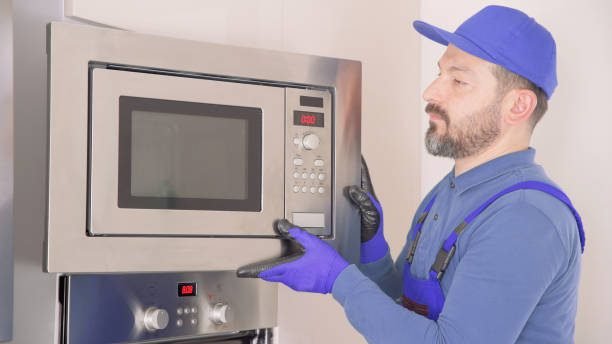
Deciding Between DIY and Professional:
If you’re deciding between DIY and professional, consider your budget, timeline, and skillset. Smaller projects like painting or replacing hardware might be manageable DIY tasks, while larger, more complex renovations may require professional help.
19. Conclusion

Ultimately, deciding between DIY and professional kitchen renovation depends on your unique circumstances. DIY can be rewarding and cost-effective but requires time, effort, and skills. On the other hand, professionals offer expertise, quality, and peace of mind, though at a higher cost. Whichever path you choose, the result should be a kitchen that reflects your style while enhancing your home’s functionality and value.

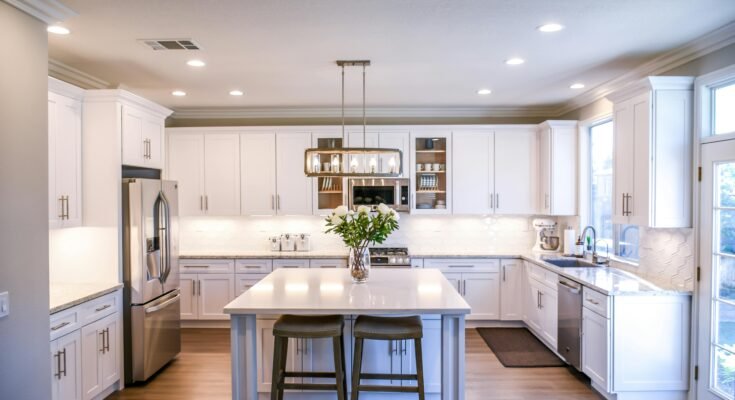
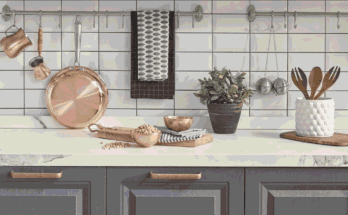

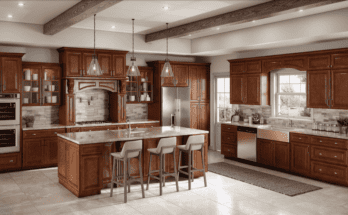
3 Comments on “DIY vs Professional Kitchen Renovation-What’s Best for You?”